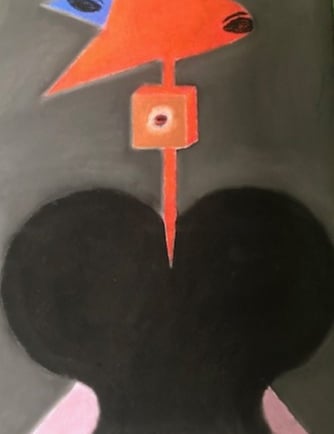Motherhood, Storytelling, and the Body: Unearthing Deep Stories through Somatic Practice
MOTHERHOODSTORYTELLING
Maša Hilčišin
6/20/20253 min read


They say our bodies remember.
Every sorrow, every joy, every moment too intense for words — it doesn’t disappear. It lingers, woven deep into the fabric of our muscles, our breath, the weight we carry in our shoulders, the tremble behind our ribs. Our stories live beneath the skin, waiting — patiently, achingly — to be told.
Yesterday, I cried.
Not the kind of tears that politely fall, but the kind that shake the whole house of the body. The kind that wring the lungs and contract the chest like a fist closing. I cried for the loss of a beloved friend. His death came like a sudden shadow, asking questions I had no answers for: Why now? Why him?
And almost at the same time, I received news that my son would need to repeat a grade next year. He cried, too. For hours. For days. He grieved the change, the sense of failure, the rupture of friendships he was just beginning to form. We are living in a new land, with new words and new customs. He has been asked to grow far too fast, and still — still — he is learning how to begin again.
I feel his heartbreak in my own body. I hold it in the hollow of my chest. And within that ache, I hear the familiar whisper: Maybe I haven’t done enough. Maybe I am not enough.
What My Body Knows of Motherhood
I said to a wise, loving woman recently, “We mothers can be so harsh with ourselves. We judge quickly and love slowly — especially when we see our children hurting. Guilt becomes a ghost we carry.”
And it made me wonder — where do I stand in the vast, untamed land of motherhood? What shapes my sense of self as a mother, especially when life doesn’t go “as planned”? What ancient echoes fuel this guilt, this grief, this longing?
I traced it back — as we often do — to my own mother.
My mother. A woman who was the very embodiment of beauty, gentleness, and quiet strength. Thirteen years have passed since she left this physical world, and she never had the chance to meet my son. There are so many conversations I long to have with her still. So many times I want to say thank you.
And yet, I also remember how deeply she judged herself. How she wore guilt like a second skin whenever we struggled. How harshly the world treated her for every perceived failure. I can still feel the residue of that in my own bones. Because I believe — with all my being — that stories live in us across generations. That our mothers' stories become our stories, unless we choose to unearth and alchemize them.
The Dance of Grief and Grace
So I did something simple. And sacred.
I let my body speak.
I moved — not from choreography or control, but from truth. I let my shoulders cry. I let my spine remember. I let the guilt breathe. I danced not to perform, but to witness.
And after the last motion melted into stillness, I picked up my journal and wrote a single sentence. A sentence my body had whispered back to me. That sentence became a short poetic video, a prayer to the sky, a small, embodied hymn of truth:
"I’ve come a long way—for my son, who has taught me so much; for my body, to finally speak its truth; for my memories, to be released."
Than I danced with the camera as if it was my reflection. I danced with the wind, and with the echoes of my mother’s voice, and with the grief that refuses to be linear.
This process — of letting the body lead, of letting emotion move rather than consume — helped me say what words alone could not hold. It helped me remember that motherhood is not a destination, but a living poem — full of messy metaphors, tender contradictions, and a beauty that does not require perfection.
It reminded me that our journey as mothers is sacred. That the act of feeling, expressing, and witnessing ourselves — fully — is an act of love.
Let us honor that. Let us let our bodies speak. Let us mother ourselves, too.